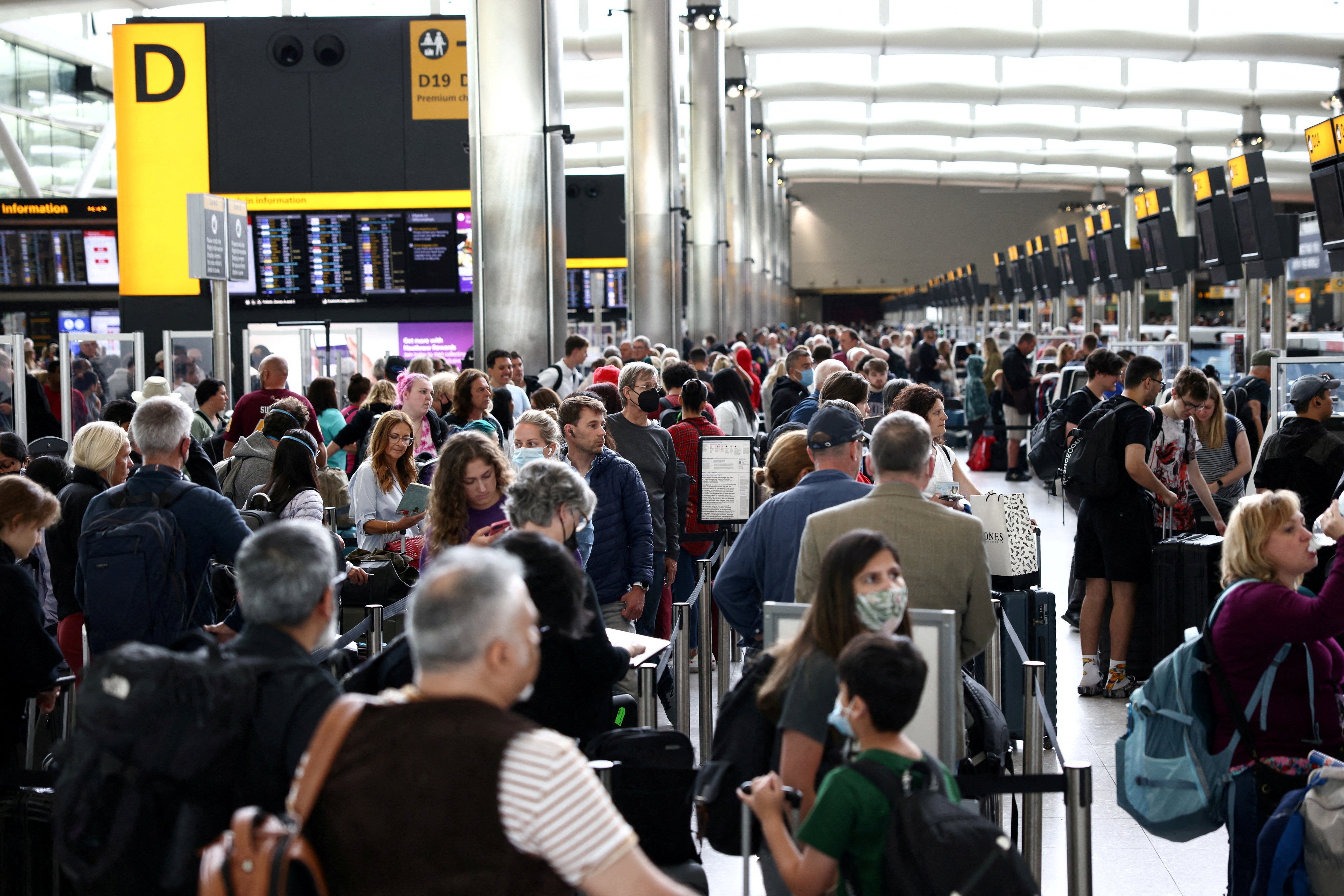British holidaymakers may need ‘plan B’ this summer as Heathrow imposes daily passenger cap
Plane Talk: ‘100k-a-day’ flight cap at the UK’s busiest airport is adding to uncertainty

Pilots routinely have a plan B: if their diversionary airport is closed for reasons of poor weather, air-traffic control failure or (as happened to me at Gatwick) a broken-down plane blocking the runway, their flight plan prescribes an alternate.
For Las Vegas, make for Phoenix; aiming for wind-wracked Madeira? Make it Tenerife, or Lisbon, or even back to Gatwick.
This troubled summer, passengers need a plan B, too.
Flight from Heathrow to Barcelona grounded? Which other London airport has the best alternative. And can I carry cabin baggage only, in order to be on the bus to Gatwick or Luton ahead of the pack?
I stress that the vast majority of airline travellers to and from the UK this summer need not stress: journeys will be more or less as planned, and a good summer will be had by almost all.
That is not the way readers who contacted me after Heathrow announced its ‘100k-a-day’ flight cap see it.
The chief executive of Britain’s biggest airport, John Holland-Kaye, said on Tuesday morning that airlines should cease ticket sales on summer flights from Heathrow “to ensure passengers have a safe and reliable journey”.
A series of test bookings suggest that airlines are selling away, for now at least. But I want to focus on the numbers.
Heathrow has imposed an unprecedented limit of 100,000 departing passengers each day through the summer until 11 September.
That sounds a big number (as they say on Radio 4’s excellent More or Less) – but is it? Yes.
Many more passengers fly out of Heathrow even in such reduced circumstances than depart from any other British airport – and the other European giants at Amsterdam, Frankfurt, Istanbul and Paris CDG struggle to achieve 100,000 passengers per day.
The figure also represents somewhere above 600 flights.

Crucially, though, what travellers care about is how that 100k compares with the numbers that airlines were expecting to feed through Heathrow.
And that’s where things get tricky.
Mr Holland-Kaye says: “The latest forecasts indicate that even despite the amnesty, daily departing seats over the summer will average 104,000 – giving a daily excess of 4,000 seats.
“On average only about 1,500 of these 4,000 daily seats have currently been sold to passengers, and so we are asking our airline partners to stop selling summer tickets to limit the impact on passengers.”
Yet that is not quite the full picture. Across at the masters of schedule analysis, OAG, John Grant has been working wonders on a more accurate picture.
“The current daily average of capacity is some 122,187.”
How does that work with Heathrow’s estimate of 104,000 seats?

Here is what I have worked out. On the typical day, given present booking trends, Heathrow would expect to see without a cap 104,000 departures – representing an 85 per cent load factor.
With many flights heavily sold, the estimate for a typical current day is 101,500 – an 83 per cent load factor.
So the Heathrow CEO is saying: stop selling and then we’ll be able to disperse the excess more easily.
Mr Grant says the airlines are not going to be delighted.
“In total London Heathrow are seeking a reduction in passengers of around 1,375,000 handled at the airport through to September and that is a lot of lost revenue.” He puts the cost at perhaps half a billion pounds.
If such caps become a feature of the aviation scene, the airlines need a plan B too – such as splitting their operations between London airports and perhaps more widely across the UK. Which, I think, would be no bad thing.
Join our commenting forum
Join thought-provoking conversations, follow other Independent readers and see their replies
Comments


Bookmark popover
Removed from bookmarks